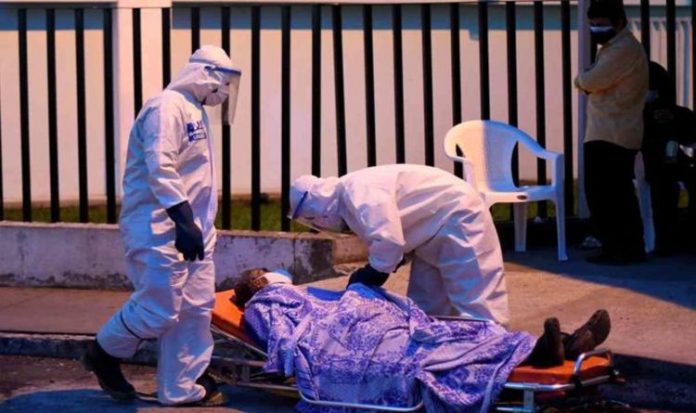Brentwood in Essex now has 1,442.5 cases per 100,000 people. This is up from 886.8 from a week earlier. Also in Essex, Epping Forest and Thurrock make up the top three worst affected areas in England for coronavirus infections.
Nine out of 10 of England’s towns and cities have seen coronavirus infection rates rise in a week, alarming new data shows.
As the government faces calls to put more of the country into Tier 4 to tackle a mutant strain causing cases to soar, Essex remains the country’s worst hotspot.
There has been 30,501 new coronavirus cases in the UK on Sunday and a further 316 deaths from the pathogen.
Infections from coronavirus increased by 57 percent last week as the new more transmissible strain has spread across the country.
On the worst day of the first wave of the pandemic, April 12, the were 21,683 coronavirus patients were being treated.
As of December 22, 21,286 patients are in hospital being treated.
The next review of patients hospitalised because of coronavirus is on December 30, but many fear the rising infections because of the new strain will make it reach past the former worst day.
According to The Times, the Scottish Academy of Medical Royal Colleges and Faculties has warned the mutant strain of the virus “could lead to the NHS being overwhelmed”.
READ MORE: Covid new strain: Five emergency symptoms of COVID-19 that require immediate attention
In London, there are an estimated 8,000 ambulance call-outs on a daily basis.
Boxing Day has been described as one of London Ambulance Service’s “busiest ever days”.
Speaking to the BBC one paramedic said: “It’s been a horrendous time.
“Ambulance staff are finding the whole situation very stressful.”
DON’T MISS
Some patients waited for six-hours on average to be seen by medical personnel.
Patients were often being treated in ambulance bays because of lack of beds in hospitals.
The president of the Royal College of Emergency Medicine, Doctor Katherine Henderson, speaking to BBC Breakfast said: “The cost is not doing what we had hoped, which is being able to keep non-Covid activities going.”
She added: “So we will stretch staff, the problem is at the moment we have a lot of staff sickness.
“But we will stretch, we will work double shifts, we will pull people in off annual leave, we will have all sorts of people working, so we will cope.
“But what you won’t see is what is overwhelmed, which is the attempt to keep other services going and we just won’t be able to do that, and people don’t see that.
“It is always challenging in winter, nobody would say that it wasn’t, but at the moment the level of patient need is incredibly high and other things stop being able to be done.”







